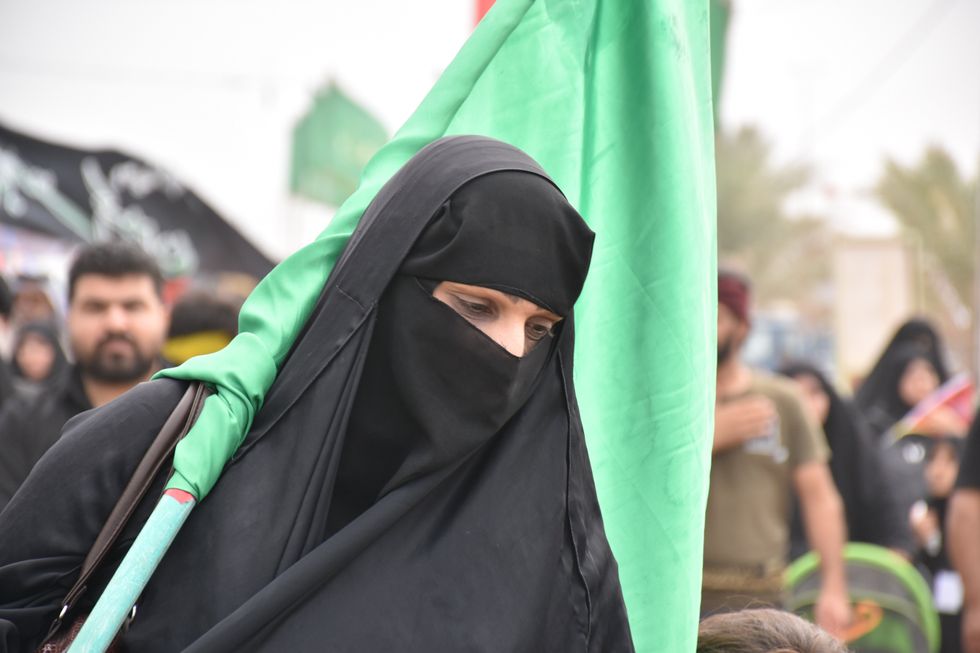"Woah, cool! Marrakech…where is that again?" This is what became the typical response upon telling people that I was to spend two weeks in Morocco analyzing the impact of Moroccan immigration and the female Muslim experience last summer. Honestly, I wasn't totally sure myself – I knew next to nothing about the reality of this region of the world. My only understanding of the Maghreb, in general, was the exoticism that Africa is so often portrayed as. In my imaginings, the country of Morocco was synonymous with the Muslim headscarf: ambiguous and complex, beautiful but mysterious, foreign and unnerving. As such, this trip was a chance to peer behind that veil, so readily denounced, exposing a reality far from my expectations.
What I discovered were people and circumstances that were far more familiar than they were foreign. In fact, neither my host sisters nor my host mother even wore a headscarf – ever. At first sight, this was a shock to me, but as I learned, it is a circumstance that is increasingly common in urban Morocco: contrary to popular assumption, to don the headscarf is a matter of personal choice. Further, the discussion of the headscarf, especially as a symbol of oppression, has evidently become painfully tiresome. When I brought up the seeming-controversy of their exposed heads at the dinner table, I was received with an initial silence and what seemed to be just short of an eye roll. My Western perspective had taught me that the headscarf was an especially sensitive and overwhelmingly important issue, yet my mother and sisters responded with nonchalance, answering what I thought would be a dinner-long conversation in a couple of tired sentences: "you choose what you want to do—for us, to wear it is just a hassle."
Rather, in the context of my homestay experience, a normal outing for a Moroccan woman is to put on a pair of jeans and a t-shirt and walk the stretch of the Menara Mall dancing and singing to Morocco's top radio hits. Fully-veiled women clutched the hand of their robed husbands, younger women in tank tops and tight pants strutted as we window-shopped. I'd be lying if I said those younger, liberally-dressed women didn't receive special attention from their onlookers (men and women alike). But, judgement of a familiar kind: the gently disapproving look of my mother as I walk out the door in a short dress or, later, the derogatory shout from a strange man in the street as I saunter past. Nothing encumbering or oppressive, rather traces of looming dogma from a time before our time.
One night, we visited my host family's neighbors. Though none of the women next door could speak particularly good English and my Darija was decidedly incomprehensible, I was overwhelmed by a form of unconditional kindness and hospitality that surpassed the barrier of language. The room continuously filling and draining with laughter, these women quickly felt like old friends from a life I had lived and could only hazily remember. The next day, my host mother and I were walking down the stairs of our apartment complex when she stopped to greet a woman wearing a burqa in the hallway. Upon sight of her dress, I felt my chest involuntarily tighten; my openness became constricted by her cloak of difference. Then, a set of familiar eyes met mine through the small slit in her dark, draping fabric. Suddenly, our respective veils vanished, mine of ignorance, hers of attributed fear, just as they had the night before when we were laughing together in her living room. Flushed with guilt, I greeted my long lost friend, my Moroccan neighbor, whom I had accepted unquestionably when she was wearing sweatpants and a t-shirt just the night before.
To belittle cultural differences is just as much of an injustice as is to aggrandize them. However, my time spent in Morocco made me realize that we often use our differences to substantiate our fears. We use veils of difference to separate ourselves between people like us and people unlike us, attributing fear to the latter. Though these Moroccan women were certainly different from me, harboring beliefs and practicing norms distinct from my own, what I found in Morocco was an eagerness to connect in light of those different veils we don. My beliefs are not cast across my face for the world to judge; I do not drape them across my shoulders like the Muslims who so choose to. But my unexamined biases can become just as much a barrier as a physical veil. And so, it is important for me to consider the beliefs I harbor, my invisible headscarf, so I may better see, accept, and rejoice in the choices and beliefs of others.
- What Everyone Should Know About Hijab Through The Eyes Of ... ›
- 10 Struggles That Muslims Have, As Told By Memes ›
- How The Depiction Of Muslim Women In Media Dehumanizes Them ›
- The Hijab Is A Personal Choice, Not Your Political Symbol For ... ›
- Beyond the Burqa | Human Rights Watch ›
- Hijab: Empowering or oppressive? - sister-hood magazine. A Fuuse ... ›
- Why Muslim women don't believe wearing the hijab is oppression ... ›
- As a Muslim woman, I see the veil as a rejection of progressive values ›
- Five truths about the hijab that need to be told ›
- Is the Hijab a Symbol of Diversity or a Symbol of Oppression ... ›
- Wearing the Hijab in Solidarity Perpetuates Oppression - NYTimes ... ›












